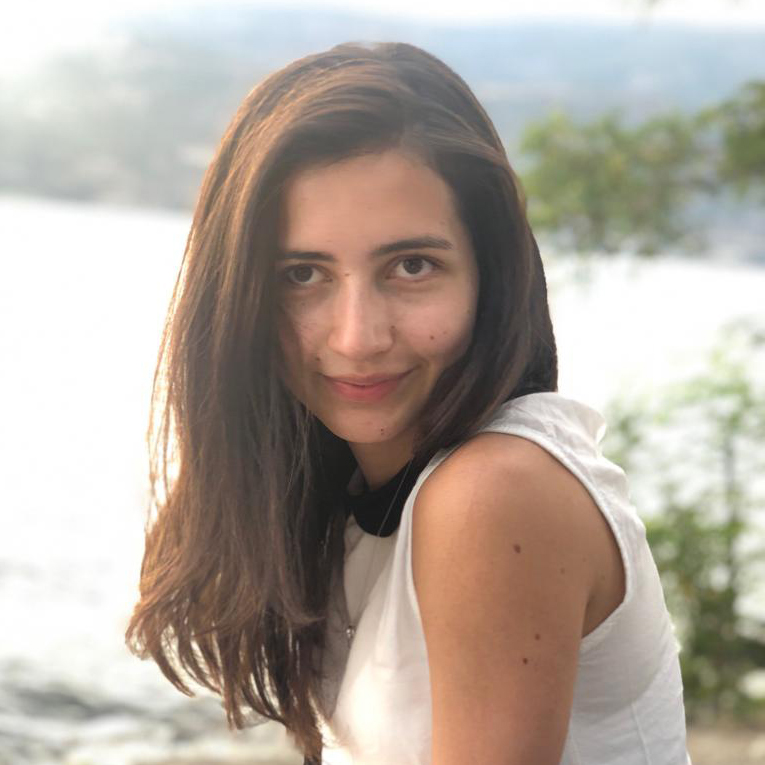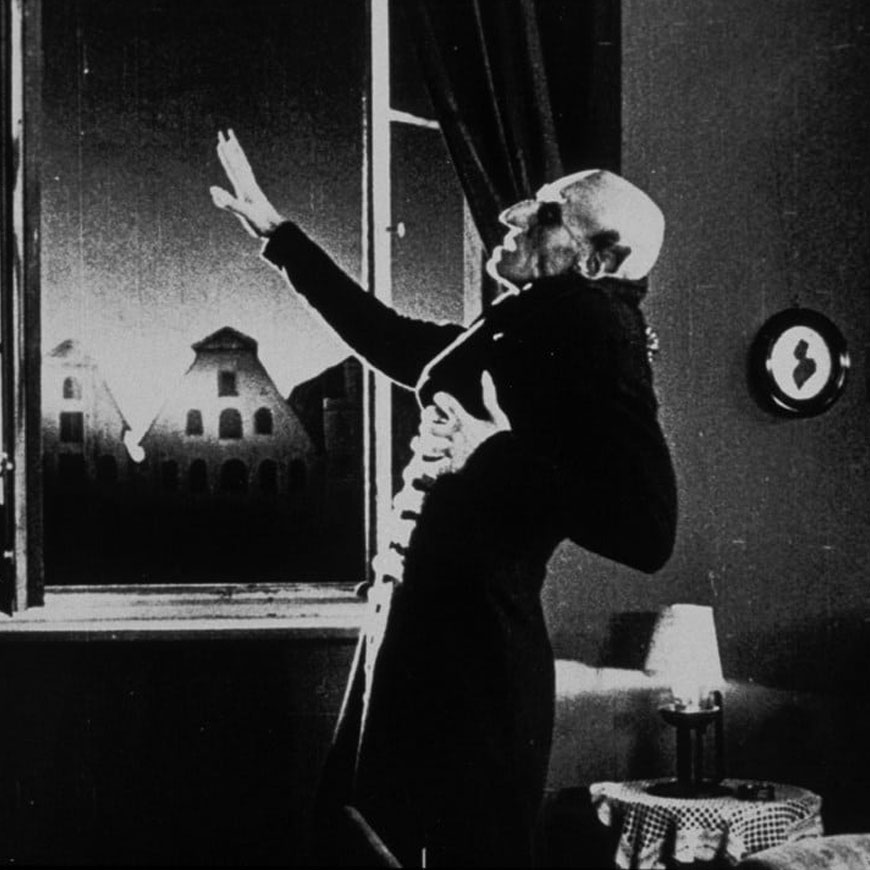Inquire
Francisco Pena
World Literatures Student Advisor
francisco.pena@ubc.ca
Francisco Pena
World Literatures Student Advisor
francisco.pena@ubc.ca
World literature is a vibrant and vital field of study encompassing a spectrum of national literatures, historical periods and cultural phenomena through the ages and across the globe. It is a method of conceptualizing and reading literature as a witness to constant transformation and change. Tracing a global arc across a wide selection of oral, written and visual traditions, students will explore how politics and ideology shape and define literatures across geographical, cultural and ethnic boundaries.
Courses offered in this area also examine the literary properties of other genres of artistic communication, and the relationship between literature and other genres, including film, oral traditions, television, music, theatre and visual arts.
The intercultural learning and international awareness fostered by the study of literature in global perspective prepare students to flourish academically and professionally in an increasingly interconnected world.
Anderson Araujo | Transnational modernism; First World War poetry, 20th-century British and Irish literature; modernism and transatlantic modernism; peace and war studies; aesthetics.
Anderson Araujo’s published research engages the intersections of aesthetics and politics in Transatlantic Modernism, in articles on avant-garde movements and modernist writers, including Ezra Pound, T. S. Eliot, Virginia Woolf, and Richard Aldington. His first book, A Companion to Ezra Pound’s Guide to Kulchur (2018), offers a comprehensive and interdisciplinary study of this critical text in Pound’s oeuvre and biography. He is currently writing a book on modernist cultural politics and the Spanish Civil War.
WRLD Courses: WRLD 200. Introduction to World Literatures; WRLD 360. Literature and Power; WRLD 331. “Best” International Feature Films; WRLD 332. Nobel Prize Literature
Alison Conway | Literary and cultural history of the long eighteenth century in Britain; narrative studies; and gender and sexuality theory.
Alison Conway is the author of two books: Private Interests: Women, Portraiture, and the Visual Culture of the English Novel, 1709-1791 (2001) and The Protestant Whore: Courtesan Narrative and Religious Controversy in England, 1680-1750 (2010). She is co-editor, with Mary Helen McMurran, of Mind, Body, Motion, Matter: Eighteenth-Century British and French Literary Perspectives (2016), and co-editor, with David Alvarez, of Imagining Religious Toleration: a Literary History of an Idea, 1600-1830 (2019).
WRLD Courses: WRLD 428 Anti-Semitism: Then and Now
Monica Carolina Good | Spanish Culture and Literature; Indigenous literature; Indigenous language reclamation and revitalization (specifically for the case of Mexico); Indigenous peoples rights to court interpretation (Case of Oaxaca).
Monica’s work strives towards Indigenous languages revitalization and linguistic rights for Indigenous peoples, specifically for the case of Oaxaca, Mexico. Her research gives voice to Indigenous survivors of the legal system, and advocates for better training programs for Indigenous language interpreters. At present, Monica collaborates with a group of colleagues from USA and Mexico in a cultural revitalization project involving Indigenous communities in Oaxaca (Zapotec and Mixtec), and Mayan communities in the states of Campeche and Yucatan.
WRLD Courses: WRLD 155. Introduction to Language and Culture: Mayan; WRLD 340 Tales of Resistance: Indigenous voices in Central América
Hussein Keshani | Sultanate, Mughal and Late-Mughal era (Nawwabi) visual culture; Digital Islamic Art History; Interpretation in Digital Media for Botanic Gardens and Museums
Keshani’s work crosses multiple disciplines including history, religious and gender studies, digital art history/humanities, world literature, interpretation and art and architectural history. His diverse research practices include, archival and museum research, fieldwork at architectural sites and botanic gardens, coding, and analytical renderings of architectural drawings and digital models.
WRLD Courses: WRLD 370. Story and Image Across the Islamic World; WRLD 375. Encountering India: The Age of the Mughals
Frances Langevin | Plurilingual and pluricultural competencies; FSL didactics; Québec Studies; Place in French-language Fiction (régionalité); Narratology; French Linguistics and Literary Theories; Discourse Analysis (énonciation)
Francis Langevin is a Literary Theories, French and French Canadian Studies scholar whose published research focuses on 3rd-person narration, the relationship between style and values, and the representation of place in fiction (régionalité). His educational leadership projects study the development and the assessment of plurilingual and pluricultural competencies and attitudes in FSL education in Canada, especially in minority settings. He is currently conducting theoretical and empirical research on learners attitude change and motivation in university-level French language and Quebec Studies learners in Canada and abroad (20+ universities). At UBCO, he is in charge of aligning the French program (Minor & Major) with the Common European Frame of Reference for Languages (CEFR) as well as the Diplôme d’étude de langue française (DELF) testing format.
WRLD Courses: WRLD 153. Introduction to Language and Culture: French in Canada; WRLD 331. Nobel Prize Literature; WRLD 332. “Best” International Feature Films
Francisco Peña Fernández | Literary Studies, Biblical Studies, Religious Studies, and History of Ideas; literary study of the Bible; influence of the Bible in Medieval and Early Modern Spanish literature; Jewish/Christian relations in Medieval Iberia.
Francisco Peña´s research is wide-ranging and interdisciplinary in nature, involving Literary Studies, Biblical Studies, Religious Studies, and History of Ideas. He is the Principal Investigator of “The Confluence of Religious Cultures in Medieval Historiography: A Digital Humanities Project” financed by the SSHRC Insight Grant. This research project comprises the first interdisciplinary study of the General e grand estoria (GGE).
WRLD Courses: WRLD 100. World History of Horror; WRLD 240. World Sacred Scriptures: The Hebrew Bible; WRLD 310. Mythologies in Motion; WRLD 428 Anti-Semitism: Then and Now
Virginie Magnat | Performance Studies, Qualitative Research, World Performance Traditions
Virginie Magnat´s interdisciplinary and cross-cultural research spans the fields of performance studies, cultural anthropology, arts-based qualitative inquiry, and Indigenous epistemologies and methodologies. She co-leads a UBC-funded international research cluster exploring the cultural, spiritual and environmental dimensions of health and well-being. Her two monographs The Performative Power of Vocality (Routledge 2020) and Grotowski, Women, and Contemporary Performance: Meetings with Remarkable Women (Routledge 2014) and companion documentary film series (Routledge Performance Archive) are based on her SSHRC-funded research. Her publications have appeared in North American and international scholarly journals as well as edited collections in the fields of theatre and performance studies, anthropology, ethnomusicology, sociology, qualitative inquiry, and literary criticism in English, French, Polish, Italian, and Spanish.
WRLD Courses: WRLD 304. World Theatre and Cultural Performance; WRLD 313. Dramatic Literature in Performance
Alwyn Spies | Intercultural communication, community service learning, gender and autiobiography/memoir (particularly migration narratives), Japanese detective fiction, Japanese Studies, Asian Studies.
Alwyn Spies’ published research explores the boundaries between pure literature and pop culture in contemporary Japanese women’s writing and manga. Most recently her research, writing and educational leadership projects focus on pop culture and Japanese Studies curriculum design, and the development of hybrid online teaching materials – all with the goal of increasing intercultural capacity-building in undergraduate education.
WRLD Courses: WRLD 150. Introduction to Intercultural Communication; WRLD 382. Cross-cultural Travel Narratives; WRLD 330: War Narratives, WRLD 331. Nobel Prize Literature; WRLD 332. Best Foreign Movie, WRLD 497 Community Service Learning.

Carolina Layton, a 4th year English honours student took WRLD 360: Literature and Power/Literature and Power in the Hispanic World as an upper year elective. “I enjoyed learning about artists and writers that are not part of the dominant Euro-American culture. Unless you are purposely trying to diversify your learning and curriculum, it is difficult to come across minority writers in upper-year education, but I think it is extremely valuable and important. This course also gave me more theoretical tools to analyze literature—like for example analyzing from a historical perspective—which, in the future, will allow me to better approach a wide and more diverse range of texts, in addition to giving me background in histories that I do not always get to hear.”

Professor Francisco Peña teaches Mythologies in Motion, a course at the 300 level that students were able to take as an elective from a number of different programs. Dr. Peña noted that the biggest surprise he had was in relation to the range of students and the diversity of programs that the students are in.
“There have been many students interested in the humanities, in general, but there have also been those who come from the field of science, especially biology.” says Peña.

Monsters, Witches, and Serial Killers
This course is designed as an introduction to the idea of horror, as portrayed in many types of literary, and film texts across a range of times and geographic regions. Enlisting methodological and analytical tools drawn from World Literature as an interdisciplinary approach informed by the idea of global citizenship, the course will explore a selection of works with the aim of developing strong, critical interpretive skills through attention to critical and interpretive reading strategies and research-based writing. (Course: WRLD 100)

This is a course about the city of Berlin, looking at some of its history, but focusing more on a few of the key texts and movies, including the more recent “Berlin Babylon” as a reimaging of the Weimar Republic, a brief glimmering of art at one of its pinnacles, and also a broken state that could not resist National-Socialism. The course will also be sure to look at modern Berlin, and what makes the capital of Germany tick. (Course: WRLD 399D-001)

This course will first introduce the students to the ideological and historical backgrounds that led to the development of Western anti-Semitism. In the second part of the course, students will study the political and religious contexts that shaped the writing of Shakespeare’s Merchant of Venice, as well as the play’s ambiguous legacy in the shaping of modern understandings of Judaism. We will then turn to the cultural origins of twentieth-century anti-Semitism and study Claude Lanzman’s documentary Shoah. The course will conclude with reflections on the current rise of violence against Jews in the West. (Course WRLD 428-001)